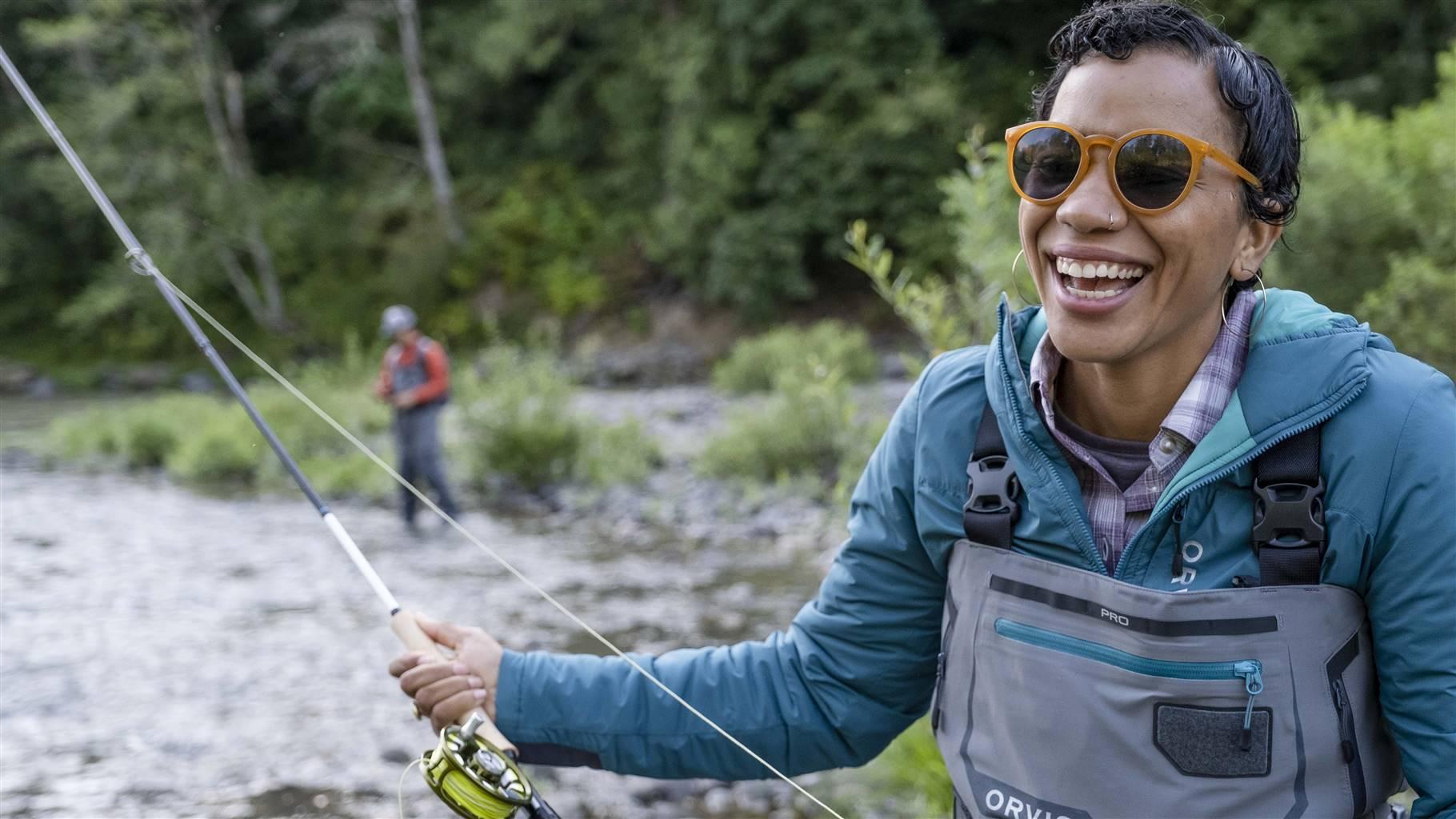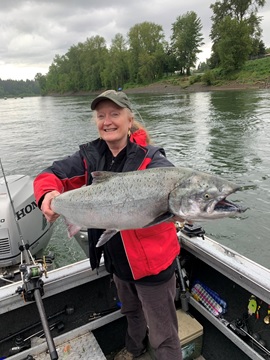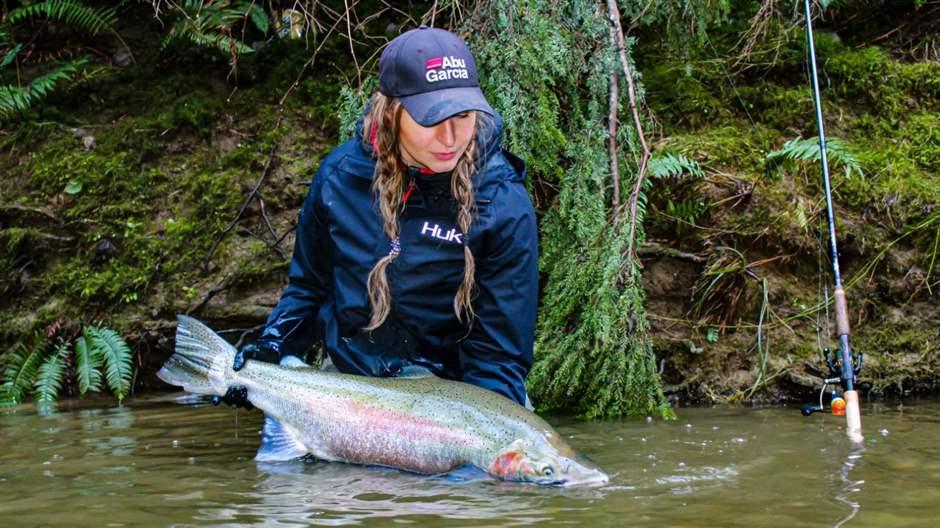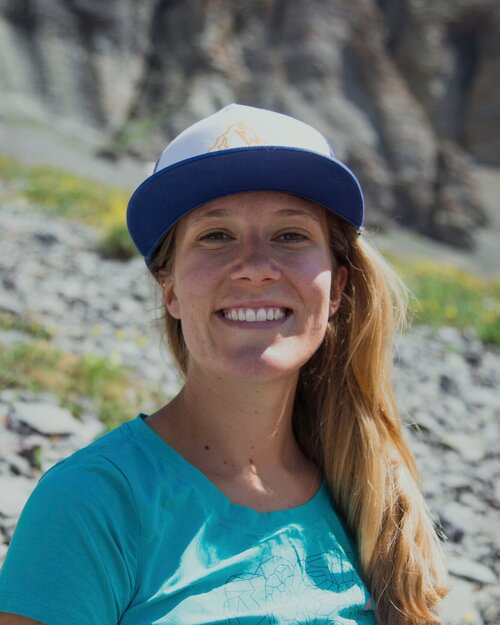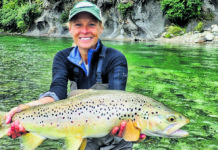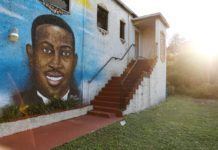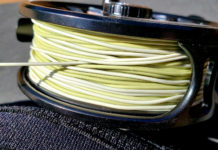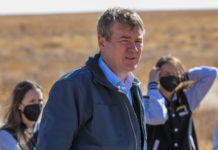Although it should go without saying that women have long played an invaluable role in conservation, we’re going to say it anyway. From those who work in companies, nongovernmental organizations, or government to individuals stepping up on local issues, women have helped to safeguard lands and waters that are vital to the health of our planet, and to the economies and well-being of communities. To mark Women’s History Month, The Pew Charitable Trusts celebrates five women who are leading efforts across the U.S. to ensure that our rivers remain clean and free-flowing for future generations.
Julie Nania is the water program director at High Country Conservation Advocates in Crested Butte, Colorado, where she works to protect the state’s rivers. One approach is to identify and advocate for rivers that qualify for designation as outstanding natural resource waters, and another is to recommend rivers for protections as part of the forest planning process for the Grand Mesa, Uncompahgre, and Gunnison national forests. She also leads stewardship projects to enhance watershed health and restore riparian habitats and works with municipalities to improve water efficiency and landscape conservation. One can find Nania building community support for river protections, advising local decision-makers, or collecting water quality data in the field with partners. “Relationships with rivers are both a personal affair and essential to the survival of our ecosystems,” she says. “Spending time on rivers offers us an opportunity to grow. Few things can match the experience of a rowdy whitewater run with friends, helping to pick up the pieces if things go awry. And while these experiences are irreplaceable, our landscapes would simply not exist were it not for the life force that rivers provide.” Nania has also served on the Upper Gunnison River Water Conservancy District board of directors for the past four years.
“Rivers are such a part of my understanding of this country,” says Faith Briggs, a documentary filmmaker and storyteller who grew up near the Hudson River in New York—which she notes is “the first place I jumped off cliffs and learned to skip rocks.” While working on the series “Drought” at Discovery Communications, she learned about water rights controversies along the Colorado River. “It hit home to me then that rivers are our lifeblood. I think the more we understand that, the more we’ll know how important it is to keep them clean and support river health.” Briggs lives in Portland, Oregon, and works with nonprofits, institutions, and outdoor businesses to increase diversity and create media that represent the world in which we live. “Since I’ve fallen in love with fly fishing, I’ve experienced rivers from Kamchatka, Russia, to Alaska to eastern Oregon. I’ve had the joy of working at nonprofits like Soul River that connect people to rivers and help young people from [communities of color] learn about entomology.” Briggs is also an ambassador for Brown Folks Fishing, which works to expand access for people of color in fishing and its industry. “I’ve always felt a kinship with rivers based on the place they occupy in the African American literary tradition,” she says. “I think about ‘The Negro Speaks of Rivers’ by Langston Hughes, which begins, ‘I’ve known rivers.’ The more that I have the joy and opportunity to experience rivers, the closer I feel to that part of my heritage.”
As executive director of the Northwest Sportfishing Industry Association, an Oregon-based association of businesses , Liz Hamilton has spent the past three decades working to ensure that healthy rivers and the fisheries they sustain will be around for future generations. “Recovering salmon and steelhead is about so much more than saving a fish,” Hamilton says. “Our entire ecosystem, culture, and Northwest economy is built on the backs of salmon and steelhead,” she told the Eugene Register-Guard newspaper in December. “If we have any hope of safeguarding our fishing jobs and sustaining them into the future, we need to act—and we need to do it now.” Hamilton is backing legislation introduced by Senator Ron Wyden (D-OR) to safeguard thousands of miles of Oregon rivers as wild and scenic, and she speaks to the need for river protection in an upcoming segment of “This American Land,” which will air on PBS stations nationwide. “Rivers not only provide recreation and food for our table through fishing; they provide nourishment for our souls and unparalleled bonding with close ones,” she says. “I love teaching my grandchildren to fish, but a close second is helping someone catch their first salmon!”
Born and raised on Washington state’s Olympic Peninsula, Quinault Indian Nation member Ashley Nichole Lewis spent much of her childhood outdoors, exploring the area’s lush rainforests, remote landscapes, and clear, clean rivers such as the Quinault and Queets. Now the owner of Bad Ash Fishing and host of a new show for aspiring anglers, “Break Out With Bad Ash,” which will air on NBC Sports, she guides clients on those waterways in the pursuit of salmon and steelhead. As she explains on her company website, “When you take people outside and they experience how great that time spent is, they become more curious and invested in what happens to our environment.” Lewis has been a local leader in the coalition backing legislation by Representative Derek Kilmer (D-WA) and Senator Patty Murray (D-WA) to protect about 126,000 acres of wilderness and hundreds of miles of rivers on the Olympic Peninsula. When that bill cleared the House of Representatives in February, Lewis told the Aberdeen, Washington, newspaper The Daily World: “Conservation for me on the Olympic Peninsula means that generations to come can come out here and experience it the way that I experience it and the way my grandpa experienced it when he fished out here, and that forever we always have this.”
Axie Navas is the first director of New Mexico’s newly formed Economic Development Department’s Outdoor Recreation Division. She comes by this work naturally as a former journalist with Outside magazine and an outdoor recreation enthusiast. Her office is petitioning for an outstanding national resource waters designation for 150 miles of New Mexico rivers, which would protect their water quality in perpetuity. The division is leading this effort for the upper Rio Grande, Rio Hondo, headwaters of the Jemez River, and Rio Guadalupe. Navas’ office also supports federal efforts to win a wild and scenic designation for the state’s Gila and San Francisco rivers, citing data showing that protecting these important waterways will boost the local economy. “Rivers are the ecological, cultural, social, and recreational centers of New Mexico,” Navas says. “We gather on their banks and in their waters to fish, raft, feel wonder, and come together as communities. Their waters flow through our acequias and our biologically rich riparian areas.” She adds that her love of nature came from spending her childhood outside, skiing, biking, and exploring the Rockies. “I am fortunate enough to live within walking distance of the Rio Hondo. My favorite activity isn’t a high-adrenaline one: It’s listening to the murmur of the water in the early mornings when the birds and the valley are just waking up.”
Nicole Cordan oversees river corridor work for The Pew Charitable Trusts’ U.S. public lands and rivers conservation project.
Credit: Source link


















